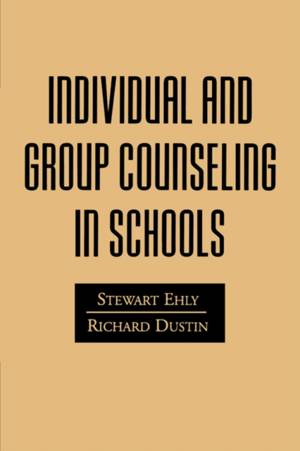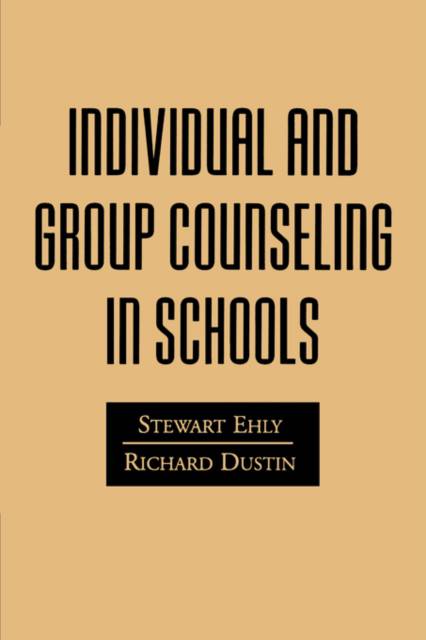
- Retrait gratuit dans votre magasin Club
- 7.000.000 titres dans notre catalogue
- Payer en toute sécurité
- Toujours un magasin près de chez vous
- Retrait gratuit dans votre magasin Club
- 7.000.0000 titres dans notre catalogue
- Payer en toute sécurité
- Toujours un magasin près de chez vous
Description
Although many types of school professionals may serve as counselors of students, they may not always be aware of the specific skills effective counseling requires. INDIVIDUAL AND GROUP COUNSELING IN SCHOOLS identifies the elements that constitute good counseling practice, and reviews the theoretical and practical aspects of a variety of specific approaches to counseling in school settings. The volume opens with a review of the factors that influence counseling practices in school settings, the types of referral procedures commonly observed, and the provision of counseling as a direct or indirect service. It then offers an in-depth examination of the different stages of counseling at the individual and group levels. Practical guidance is provided on how to:
* identify and recruit students for counseling
* establish primary goals and objectives
* conduct sessions at the individual or group level
* and evaluate the effectiveness of the counseling. For those counseling at the individual level, the book features a detailed account of the counseling process from problem identification and analysis, through intervention, to evaluation, encompassing the types of problems best addressed one on one. Also examined are practical issues of implementation, with useful detailed strategies for dealing with common student problems. The section on group counseling reviews both process and content and outlines key steps to establishing and maintaining successful groups. Crucial process skills and practical leader techniques are described in detail. Finally, fundamental ethical and legal issues are given due consideration, with straightforward guidelines delineated for decision making in the school setting. For all school practitioners-- teachers, guidance counselors, administrators, social workers, school psychologists, and consultants who wish to successfully implement counseling interventions-- INDIVIDUAL AND GROUP COUNSELING IN SCHOOLS provides a thorough yet practically oriented review of effective techniques.
* identify and recruit students for counseling
* establish primary goals and objectives
* conduct sessions at the individual or group level
* and evaluate the effectiveness of the counseling. For those counseling at the individual level, the book features a detailed account of the counseling process from problem identification and analysis, through intervention, to evaluation, encompassing the types of problems best addressed one on one. Also examined are practical issues of implementation, with useful detailed strategies for dealing with common student problems. The section on group counseling reviews both process and content and outlines key steps to establishing and maintaining successful groups. Crucial process skills and practical leader techniques are described in detail. Finally, fundamental ethical and legal issues are given due consideration, with straightforward guidelines delineated for decision making in the school setting. For all school practitioners-- teachers, guidance counselors, administrators, social workers, school psychologists, and consultants who wish to successfully implement counseling interventions-- INDIVIDUAL AND GROUP COUNSELING IN SCHOOLS provides a thorough yet practically oriented review of effective techniques.
Spécifications
Parties prenantes
- Auteur(s) :
- Editeur:
Contenu
- Nombre de pages :
- 182
- Langue:
- Anglais
- Collection :
Caractéristiques
- EAN:
- 9780898622348
- Date de parution :
- 28-07-89
- Format:
- Livre broché
- Format numérique:
- Trade paperback (VS)
- Dimensions :
- 151 mm x 230 mm
- Poids :
- 294 g

Les avis
Nous publions uniquement les avis qui respectent les conditions requises. Consultez nos conditions pour les avis.






